El Dragon Ingles
On January 1, 1586, Francis Drake and his men, at the behest of Queen Elizabeth I, attacked the island of Hispaniola and lay siege to the Spanish crown jewel in the Americas- Santo Domingo. While the battle itself did not have many casualties, the mayhem that ensued would set back the country for years, leave it open to further attacks, and loosen Spain's grip on the region.
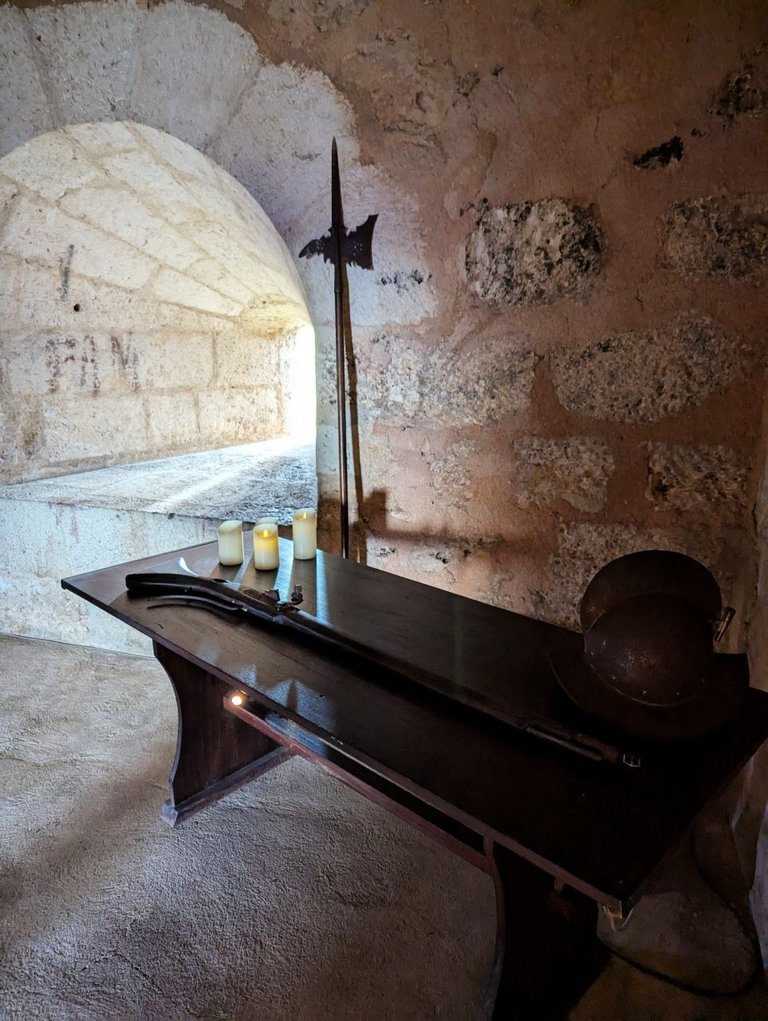
The struggle came at a time of rising tensions between the British and the Spanish, both of which had colonial ambitions in the Caribbean region and elsewhere. Seeing the need to strike first, the British monarch sent Drake and his men down to the West Indies to plunder and destroy, which they did very effectively.
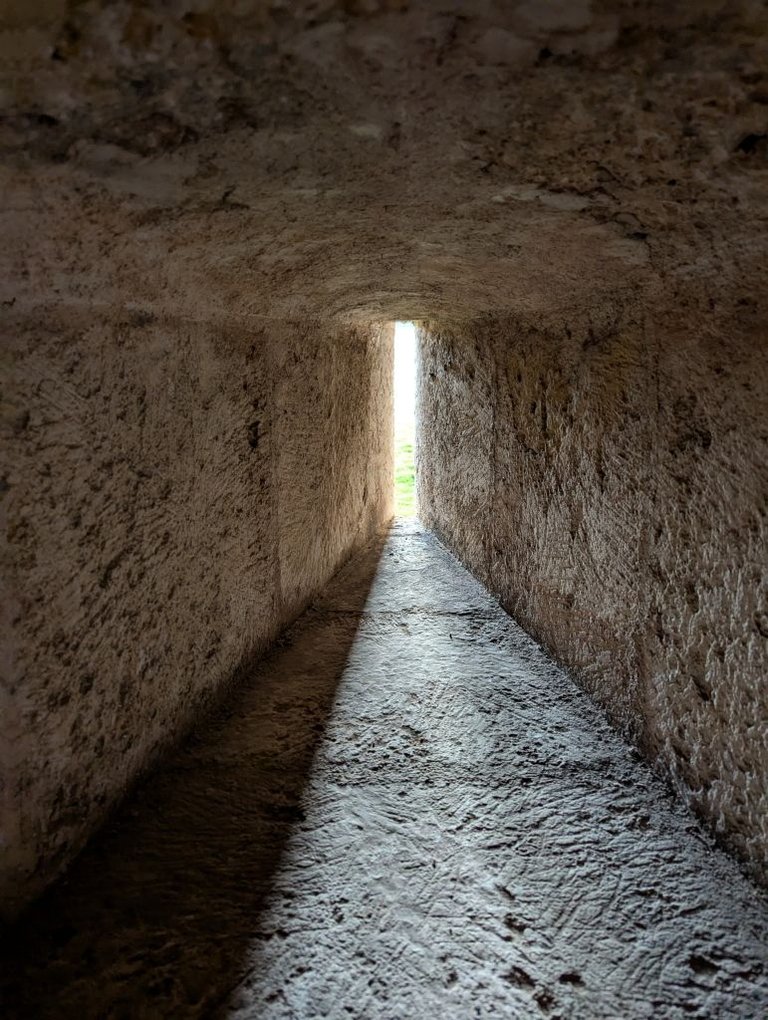
From what I’ve read, Drake decided that it was not possible to attack the port of Santo Domingo head on, so he divided his forces to attack from land and sea. The English soldiers on foot (800) sneaked via the jungle, while on board his ship, Drake bombarded Fortaleza Ozama raining chaos on the Spanish defenders.
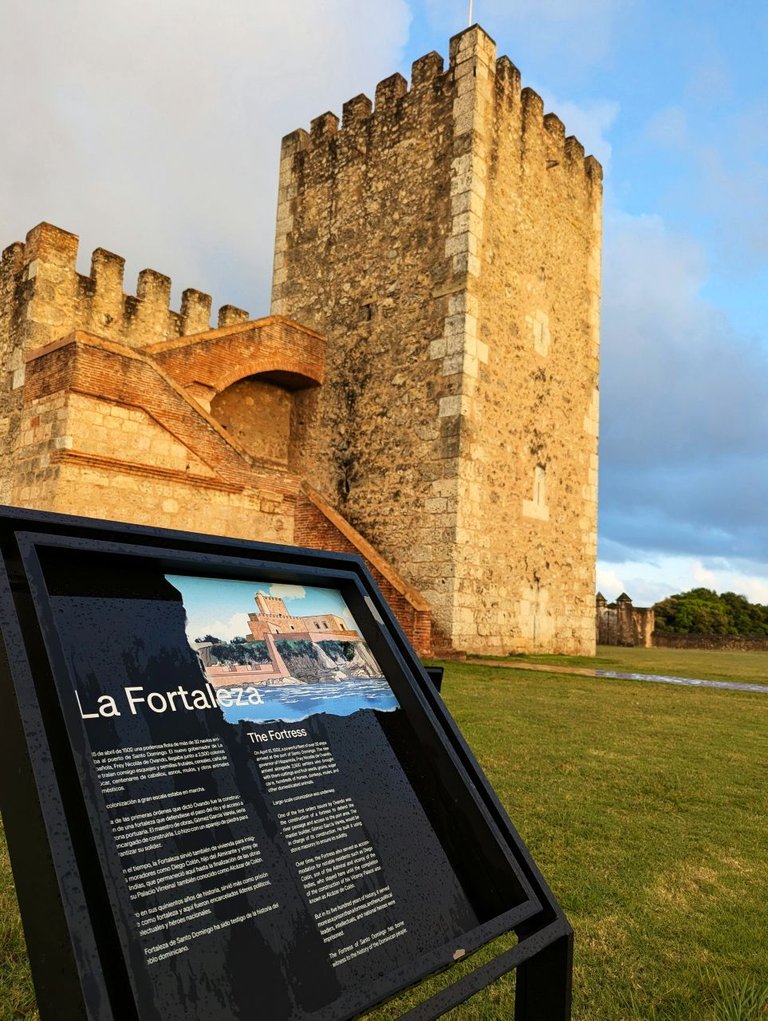
The Spanish forces were in disarray and could not hold the fort as the battle ensued with cannons and gun shots blasting in the air.
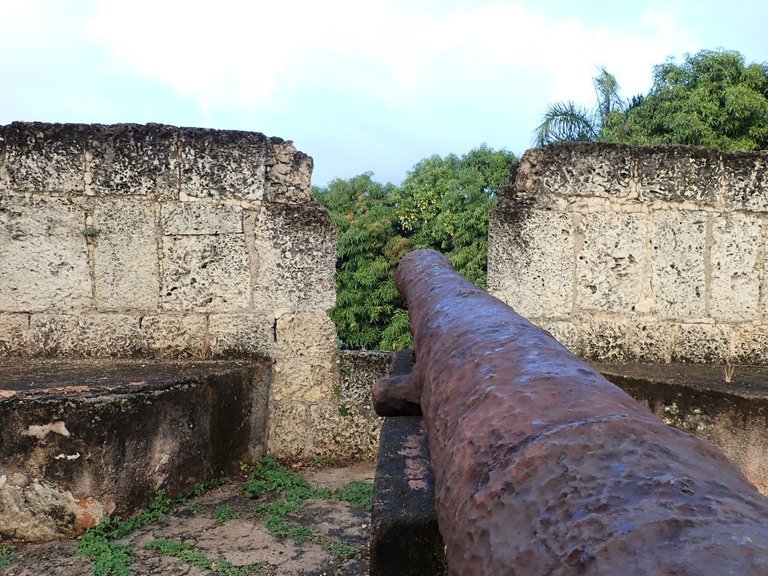 Those mangoes look tempting
Those mangoes look tempting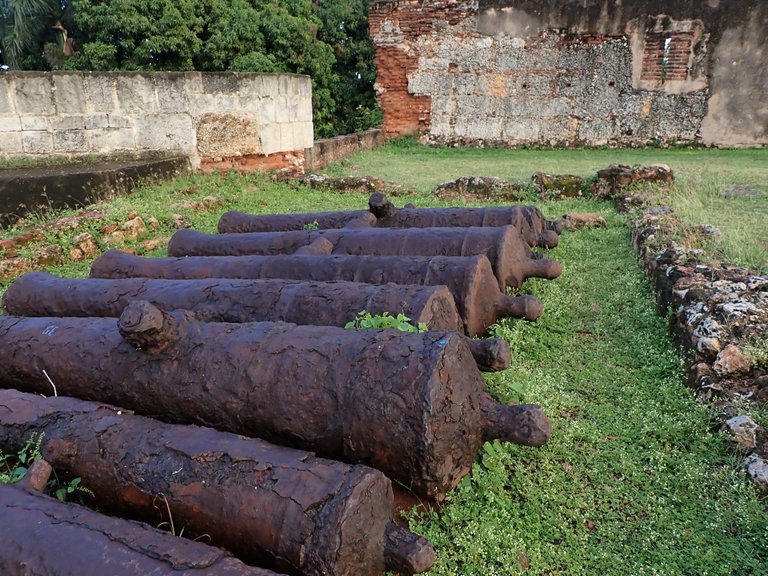
For about a month, Drake’s men proceeded to loot and destroy churches, monasteries, buildings, and written records to terrorize the citizens into submission. He extorted gold and jewels from them, weighing the loot at the Casa del Cordon, and did not leave the city until his ransom was met. It was a tremendous blow to the Spanish crown, which saw its power diminish while that of the British grew in the region.
Sir Francis Drake is clearly a controversial figure. He was a privateer and military hero for some, a plundering pirate and slave trader for others.
I did not get the sense that there was animosity towards Drake during my brief trip to Santo Domingo. In one of the museums, I came across the following Drake Exhibition tucked in a corner.
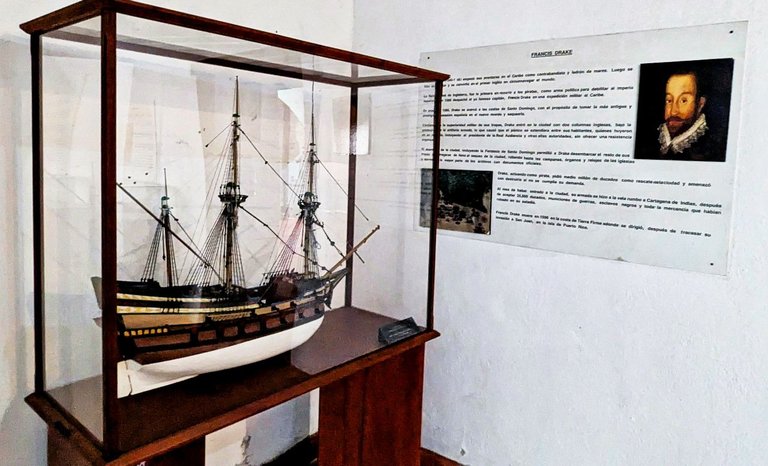
While not extravagant in any sense, it has a cordial erudite feel to it that includes a replica of the ship that he used during the siege of Santo Domingo.
‘El Draque’ left a lasting impression in the city as an odd (and cranky) historical curiosity in the long struggle for the island’s freedom and independence from colonial rule.
Resources
Sir Francis Drake on Wikipedia
The Story of Francis Drake in Spanish
Grok query retrieved August 7, 2025
 |  |  |  |
|---|---|---|---|
| X | InLeo | NFT Showroom |
I thought... how fantastic to be in such a place steeped in history, and I'm passionate about fortresses, it's great!
Fortaleza Ozama is a majestic place. Walking around the grounds, I was steeped in history. Even Christopher Columbus was held prisoner there. I like their use of technology, which I will show later. A wonderful place!
🤗🤗🤗
As I read this I think of the sorry history of Haiti...which shares that island. Not only did the French plunder Haiti, but they bankrupted the island even into the 20th century. France forced Haiti to pay reparations for lost property (slaves!!) and the Haitians had to borrow from French banks to do that. Haiti never had a chance. Even after the French were done wringing wealth out of the nation, the U. S. did its best to cripple Haiti because the example of a freed slave population was a dangerous precedent.
Haiti is a mess today, but a lot of people had a hand in making it a mess.
Sorry for the digression...this post, most interesting, is about the Dominican Republic. I didn't know about Drake. Interesting to read this.
I'm glad you found it interesting, @agmoore. From visiting this area of the Caribbean I got a sense of just how complex and messy colonial history actually was there. From what I observed, Dominicans, many of which descend from slaves, are very forthcoming about their history and proud of it in spite of that messy complexity. They honour their founders while openly showing the injustices that occurred in their past and how those were corrected to create their nation. It was eye opening to see this love of country, warts and all.
Interestingly, trading in slaves was apparently illegal under Spanish law in that area at the time, but Drake was still selling them there, and this brought him into conflict with Spanish authorities. So, the story of the siege of Santo Domingo goes deep.